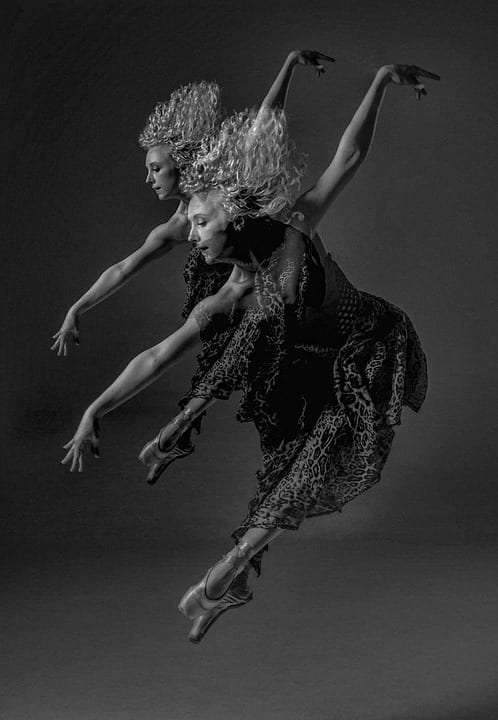I have my own thoughts about the Shakira’s and Jennifer Lopez’s performances at the Superbowl halftime show. These thoughts exist at an intersection of my different conflicting feelings and beliefs: as a woman, as a feminist, as an advocate for racial justice, as an artist.
Other people have thoughts, too. Some are expressing outrage at a performance they viewed as “pornographic,” whereas others saw it as an expression of women’s empowerment. My Latina dancer friends have been outspoken about the inherent racism in criticisms of dances that represent their culture, especially at a time when so many immigrants, as well as citizens of Latin descent, are being subjected to both individual and systemic discrimination. But others from Latin cultures are saying, at the same time “no, this is not us – pole dancing is not our culture.”
I do not feel that I have a right to enter this particular debate, as it is not for me to say what Latin culture is or is not.
This is one reason why I feel I should, for the most, part, keep my thoughts about the performance – negative and positive – to myself. There is a debate happening over culture, identity, and justice which I can listen and learn from, but which is not, fundamentally, my conversation.
But what about the conversation insofar as it pertains to the female body?
Because this is a conversation everyone feels entitled to enter. When it comes to a female body there’s no one who doesn’t get to have a say. And that’s another reason why I feel uncomfortable stating my thoughts about the performance: I don’t like the idea of adding my voice to the vast chorus of voices defining, inscribing, judging, and labeling female physicality. There’s too much of that going on already, and every woman, not only those who are paid vast sums to perform for millions, has to endure it.
We talk a lot about how the female body gets reduced to something that exists only for the male gaze. I would like to step further and say, it’s not just about the male gaze. It’s about gaze per se – the reduction of the body to an object. When feminists complain that women are denied agency, we don’t just mean this in a practical sense; we mean a metaphysical and rhetorical framing of women as objects per se, not as agents.What we do, how we live, how we dress – these decisions are not viewed as free choices of an acting subject with personal depth and dignity, but according to how well we, as inert objects, fit into a panorama specifically constructed to suit a certain kind of gaze. Our bodies are props that need to be set up just so. The value of our actions is determined not in terms of inner intentionality, but in terms of what the extrinsic eye has determined that our bodies mean. Like palimpsests, the actual living language of our acting bodies is scrawled over, obscured by the texts telling the viewers how we are to be defined: sexy, modest, slut, hot, virtuous, desperate, pure – how often do we see these adjectives slapped on with zero reference to our own agency, and only in terms of how the viewer feels about what they see when they pin us with their gaze?
How can we truly experience ourselves as agents, as subjects, in a world that only ever judges us as objects?
When we are judged for how our appearance affects others, regardless of intention? When people feel free to define the meaning of our bodies based on their own cultural lexicon, without bothering to understand ours? When our bodies are treated as moral objects, not as moral subjects?
I remember when I began to experience a shift in my sense of physicality – when I moved from the pleasant physicality of childhood to the anxiety of female-ness. As a teen, I wrote in my journal about my sense of loss, the loss of a child body, the gain of a body that seemed to belong to everyone but myself. I remember going on a date, at age seventeen, and suddenly having this sudden sense of paralysis: what should I do with this body? This body that is a problem? A temptation? That I was always being told to cover up and watch out for? A body that could lead men to hell regardless of my intention? It felt like walking around with a time-bomb strapped to my legs and chest, uncertain when it might go off. I didn’t even know what to do with my own hands.
My sense of physical anxiety was compounded by the teachings of conservative religious leaders that pushed purity culture with all its lies and toxicities; but ducking out of purity culture doesn’t mean escaping from the Defining Gaze. It is there in the fashion industry, in comedy, in advertising, entertainment. It is there in the medical industry that treats women as clueless even about our own pain.
Now, many years later, I have a hard-won sense of my body as something that is powerful. I have learned how to live in this world and not be afraid of my own physicality. The aging female body may not be as valued as the teen body, which can more easily be defined in terms of sexiness, or purity, or submission, or fertility, but I have a sense of fully inhabiting my own flesh, of being my own flesh, in a way I did not, in my younger years. I have an awareness of my own complex muscle memories, carrying in my cells skills that have taken years to develop: the knife skills in the hands, the dance skills in the legs, the riding skills in my whole bodily frame. My own sexuality is no longer something plastered on me by an over-writing power, but something in which I move and sense the world around me.
I sometimes wonder what it would have been like to have lived my life never having my own physicality disrupted by the many forces that try to make a woman into anything other than an autonomous acting subject. If I had not been ashamed of being physical, if I could have fully inhabited ever portion of my own skin, as I grew and developed, if my sexuality had not been a matter of discomfort.
How we talk about women, women’s bodies, and women’s physical action makes a difference. When we talk about a woman not as the agent who is the subject of her own story, but as an object that we get to define, it sends a message. Young girls, in particular, are vulnerable to this kind of rhetoric. It distracts them from that supremely human question “how must I live my life?” and replaces it with “am I the right kind of object?”
What if, instead of judging what a woman in the world represents to a particular gaze, we were to talk about women as subjects living in the world, humans who act, move, dance, work, fight, love, give birth, teach, create, preach, heal, rule, read, legislate, judge, sing? If we look at the obstacles women have faced and overcome? If we were to evaluate a woman’s morality not on how she appears to us, as a thing, but on how she acts, as an agent?
“The problem with women being objectified could be solved if women would just cover themselves up more and behave properly.” No. That’s just saying, “be this kind of object, the kind that makes me comfortable – not the kind that makes me uncomfortable.”
“But such and such a woman made an object of herself,” the objection goes. “If a woman doesn’t want to be treated as an object, she shouldn’t act like one.”
I’m sorry, but such statements, especially about a woman who has worked hard to perform difficult feats and complicated, athletic dance moves – when a woman is powerfully inhabiting her own body, as acting subject – are philosophically ridiculous. The reality, when someone says this sort of thing, is that the speaker is treating a woman as an object – and then blaming her for it. And that’s the enormity of the cultural problem we face, as women, and which we need to change, if we are to hope for a better world for our daughters.
image credit: https://pixabay.com/photos/dancer-dance-woman-dancers-dancing-3581946/













